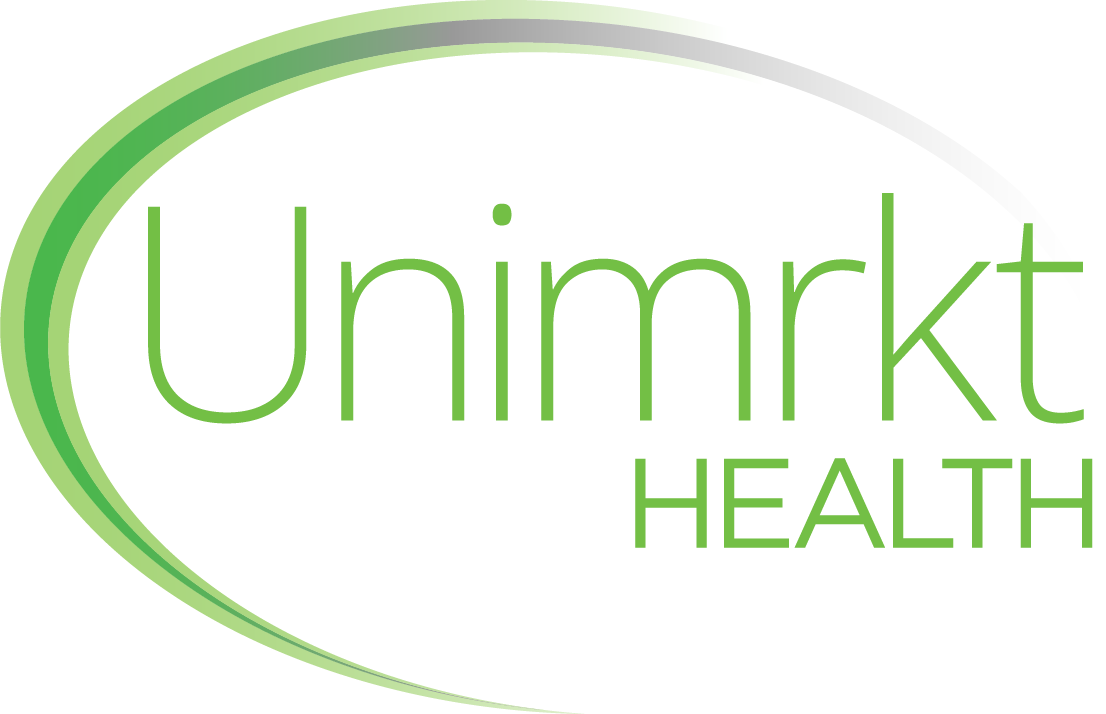Enhancing Accessibility: An Area of Improvement for Digital Healthcare Providers
- Unimrkt Healthcare » Blog » Enhancing Accessibility: An Area of Improvement for Digital Healthcare Providers
According to the World Health Organization, over 1.3 billion people worldwide live with significant disabilities. Yet, most digital healthcare platforms are not designed with them in mind. When essential care is locked behind inaccessible technology, patients are excluded, disparities deepen, and innovation stalls. Telehealth, patient portals, and mobile health apps promise convenience, yet for many, they remain barriers instead of bridges. The result? A system that unintentionally excludes the very people who need it most. For healthcare providers and digital health innovators, the message is clear: accessibility isn’t a luxury. It’s the foundation of equitable care. The future of healthcare belongs to those who design for all. The only question: Will you lead the way or be left behind? Let’s find out!
5 Hidden Barriers Blocking True Digital Healthcare Access
Digital healthcare promises convenience, efficiency, and expanded access. But for millions of patients, the reality is far different. Many still struggle to navigate platforms that weren’t built with them in mind, creating frustration, exclusion, and even gaps in critical care. Here’s what’s standing in the way:
- Complex User Interfaces: Overly complicated designs make navigation a challenge, especially for individuals with cognitive or motor impairments. If patients can’t use it, they can’t benefit from it.
- Lack of Multilingual Support: Language should never be a barrier to care, yet many digital health platforms still fail to offer robust translation options.
- Inaccessible for Visual & Hearing Impairments: Without screen readers, voice navigation, or closed captioning, those with disabilities are often left struggling to engage with essential healthcare services.
- Regulatory Compliance Gaps: Laws like WCAG and ADA set clear accessibility standards, but many providers fall short—sometimes unknowingly, sometimes at the expense of patient care.
- Limited Mobile Optimization: As smartphones become the primary gateway to healthcare, poorly optimized designs can make it difficult for patients to schedule appointments, access records, or receive virtual care.
Accessibility is a fundamental requirement for equitable healthcare. Are digital health providers truly prepared to bridge the gap? That remains the billion-dollar question. Some are making strides. Others, however, remain stuck in outdated systems that unintentionally exclude millions.
5 Key Solutions to Improve Accessibility in Digital Healthcare
A seamless, intuitive user experience is the cornerstone of accessibility in digital healthcare. Without well-designed interfaces, patients—especially those with disabilities—face unnecessary obstacles that hinder their ability to access critical health information and services. A truly inclusive healthcare platform must prioritize usability, ensuring that every patient, regardless of ability, can navigate and interact with digital tools effortlessly. Here’s how healthcare providers can achieve this:
Clear, Simple Navigation for Seamless User Experiences
Complex and cluttered interfaces can be overwhelming, particularly for users with cognitive impairments, limited digital literacy, or older adults unfamiliar with technology.
- Digital healthcare platforms should feature clear, predictable navigation paths that guide users effortlessly to the information or service they need.
- Menus and buttons should be logically structured, avoiding unnecessary layers that demand excessive clicking or scrolling.
- Consistent layouts across pages reduce cognitive load, making it easier for users to learn and remember how to interact with the platform.
A well-structured, easy-to-navigate interface allows patients to focus on their health—not struggle with a poorly designed system.
Adjustable Font Sizes and High-Contrast Color Schemes for Visually Impaired Users
A significant portion of the population experiences visual impairments, ranging from mild difficulties to complete blindness. Digital healthcare platforms must be adaptable to their needs.
- Adjustable font sizes allow users to enlarge text without distorting the layout, ensuring readability for those with low vision.
- High-contrast color schemes improve visibility, particularly for users with color blindness or other vision deficiencies. Avoiding low-contrast text and background combinations prevents critical information from becoming unreadable.
- Dark mode and customizable color themes provide additional flexibility, accommodating individual visual preferences and reducing eye strain.
Integrating these essential features can help healthcare providers break down barriers and ensure that visually impaired patients can navigate digital healthcare with confidence and independence. Accessibility is about empowering every patient with equal access to critical health information and services. A truly inclusive digital experience not just accommodates disabilities but also eliminates limitations.
Voice Command Functionality to Assist Users with Mobility Impairments
Patients with limited dexterity or motor impairments (due to conditions like cerebral palsy, Parkinson’s disease, or spinal injuries) often struggle with traditional input methods like a keyboard or touchscreen. Voice-enabled navigation is a game-changer for these individuals.
- Voice commands allow users to perform key actions, such as scheduling appointments, checking test results, or filling out forms, without relying on manual interaction.
- Speech-to-text functionalities empower users to communicate with healthcare providers, eliminating the need for cumbersome typing.
- AI-powered virtual assistants can guide users through digital healthcare platforms, ensuring a smooth and independent experience.
When healthcare platforms speak the language of accessibility, frustration fades, and empowerment takes its place. Voice-enabled navigation gives users the freedom to book appointments, access critical health information, and communicate with providers—without barriers. For users with mobility impairments, it transforms digital healthcare from an obstacle course into a seamless experience. Because true innovation isn’t just about making technology more advanced. It’s about making it work for everyone.
Keyboard Navigation Support for Users Unable to Operate a Mouse
When keyboard accessibility is an afterthought, inclusion becomes an illusion. For millions who rely on keyboard navigation—whether due to motor impairments, temporary injuries, or assistive technologies—an inaccessible platform is a locked door. Healthcare providers who fail to prioritize this essential functionality don’t just create inconvenience—they risk excluding entire patient groups from care. For individuals with motor disabilities, using a mouse or touch screen may not be an option. Digital healthcare platforms must offer robust keyboard navigation to ensure full accessibility.
- Tab-friendly navigation enables users to move through forms, menus, and interfaces seamlessly using only their keyboard.
- Shortcut key commands simplify interactions, allowing users to perform common tasks quickly.
- Compatibility with assistive devices such as sip-and-puff systems and adaptive keyboards ensures that all patients can access digital healthcare services.
Neglecting keyboard accessibility excludes a significant portion of the population, making it essential for healthcare providers to prioritize this functionality.
Plain Language to Ensure Medical Information is Easy to Understand
Healthcare terminology is often complex, filled with jargon that can be difficult for the average patient to comprehend. Ensuring that medical information is presented in plain, easy-to-understand language is crucial for accessibility.
- Use of everyday language makes healthcare guidance more digestible, reducing confusion and improving patient adherence to medical advice.
- Short, clear sentences prevent information overload, making it easier for users with cognitive disabilities or limited literacy to process content.
- Avoiding medical jargon ensures that even those without a healthcare background can fully grasp their diagnoses, treatment options, and next steps.
- Supplementing text with visuals and icons aids comprehension, catering to diverse learning styles and ensuring that important messages are effectively communicated.
When patients understand their health information clearly, they make better decisions, follow treatments more effectively, and experience improved health outcomes.
Market Research Matters To Fill The Accessibility Gap in Healthcare
Market research isn’t just a tool—it’s the pulse check on patient needs, expectations, and behaviors. Data reveals that 80% of patients favor healthcare providers that prioritize accessible digital solutions. This isn’t just a preference; it’s an expectation. Failing to meet it means alienating a vast patient base and widening healthcare disparities. Market research helps healthcare providers identify potential accessibility gaps and refine digital experiences—ultimately driving greater patient engagement. The result? Higher satisfaction, improved health outcomes, and a future where equitable care is the standard. For healthcare providers and digital health providers, enhancing accessibility should be a top priority.
Take Action Now
Are you ready to make your digital healthcare platform more accessible? Partner with industry experts and leverage cutting-edge market research services for healthcare providers to improve accessibility and enhance patient experiences. Looking for the top experts? Look no further than Unimrkt Healthcare. For over a decade, we have leveraged proven research methodologies to deliver deep data for the healthcare industry. Whether you’re looking to identify accessibility gaps, optimize patient experiences, or refine your digital health strategy, our expert team is here to help. To learn more about how our market research solutions can empower your healthcare initiatives, contact us at +91-124-424-5210, +91-9870-377-557, or email us at sales@unimrkthealth.com. You can also fill out our contact form, and our specialists will get in touch with you promptly.
Recent Posts
- 10 Medical Online Survey Mistakes You Must Leave Behind in 2025
- How Qualitative Healthcare Research Can Accelerate Ethical AI Adoption
- Trust as a Growth Strategy: What Healthcare Leaders Can Learn From Business Market Analysis
- Mapping the Healthcare Value Chain: A Market Research Perspective
- Decoding Emotional Triggers in Treatment Choices: A Qualitative Approach
Archives
Quick Enquiry
Customer Service, We Make it Better
Related Posts:
Let's Connect
Please, fill in the form to get in touch!



